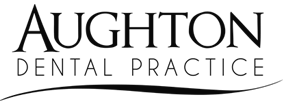NHS Fee Schedule 2024
We are pleased to publish NHS fees for a selection of common types of dental treatment. These fees are only a guide and are for patients receiving and paying for NHS treatment.
For more information on the NHS and dentistry, visit the NHS Choices website.
NHS dental charges from 01st April 2024
If you normally pay for NHS dental treatment, there are three standard charges. The amount you pay depends on what treatment you need.
NHS dental charges
There are three NHS charge bands.
Band 1: £26.80 includes an examination, diagnosis and advice. If necessary, it also includes X-rays, a scale and polish and planning for further treatment.
Band 2: £73.50 includes all treatment covered by Band 1, plus additional treatment, such as fillings, root canal treatment and removing teeth (extractions).
Band 3: £319.10 includes all treatment covered by Bands 1 and 2, plus more complex procedures, such as crowns, dentures and bridges.
For more information, see What is included in each NHS dental band charge?
What if I need more treatment?
If, within two months of completing a course of treatment, you need more treatment from the same charge band or a lower one, for example another filling, you don't have to pay anything extra.
However, after two months, you will have to pay an additional band charge.
Emergency treatment
Emergency dental treatment will deal with the problem at hand and the fee for each emergency visit is currently £26.80. You may be advised to make another appointment for a separate course of non-urgent treatment. In this case, you will have to pay a second charge in the relevant treatment band.
Am I entitled to free NHS treatment?
You do not have to pay for NHS dental treatment if, when your treatment starts, you are:
under 18
under 19 and in full-time education
pregnant or you’ve had a baby within the 12 months before treatment starts
staying in an NHS hospital and the hospital dentist carries out your treatment
an NHS Hospital Dental Service outpatient (although you may have to pay for your dentures or bridges)
You can also get free NHS dental treatment if, when the treatment starts or when you’re asked to pay:
you’re included in an award of Income Support, income-based Jobseeker's Allowance, income-related Employment and Support Allowance or Pension Credit guarantee credit or Universal credit (check entitlement after October 31 2015)
you’re named on, or entitled to, a valid NHS tax credit exemption certificate
you’re named on a valid HC2 certificate
If you're named on a valid HC3 certificate, you may not have to pay for all your NHS dental treatment. HC2 and HC3 certificates are issued under the NHS Low Income Scheme.
If you receive any of the following benefits you will not be exempt from paying for NHS dental treatment unless you also fall under one of the categories listed above:
Incapacity Benefit
contribution-based Jobseeker’s Allowance
contribution-based Employment and Support Allowance
Disability Living Allowance
Council Tax Benefit
Housing Benefit
Pension Credit savings credit
Proof of your entitlement
You’ll be asked to show your dentist written proof that you’re entitled to financial help with dental treatment. This will vary depending on your circumstances. To check what documents you need, see the NHS HC11 leaflet: Help with health costs (PDF, 452kb).
NHS Low Income Scheme
The NHS Low Income Scheme provides financial help to people not exempt from charges, but who may be entitled to full or partial help with healthcare costs if they have a low income. Anyone can apply as long as they don’t have savings or investments over the capital limit. In England, the capital limit is £16,000 (or £23,250 if you live permanently in a care home).
Help is based on a comparison between your weekly income and assessed requirements at the time the claim is made. Entitlement broadly follows Income Support rules to decide how much, if anything, you have to pay towards your healthcare costs, including dental treatment.
The NHS Business Services Authority (NHSBSA) website has more information about the NHS Low Income Scheme, including how to apply.
